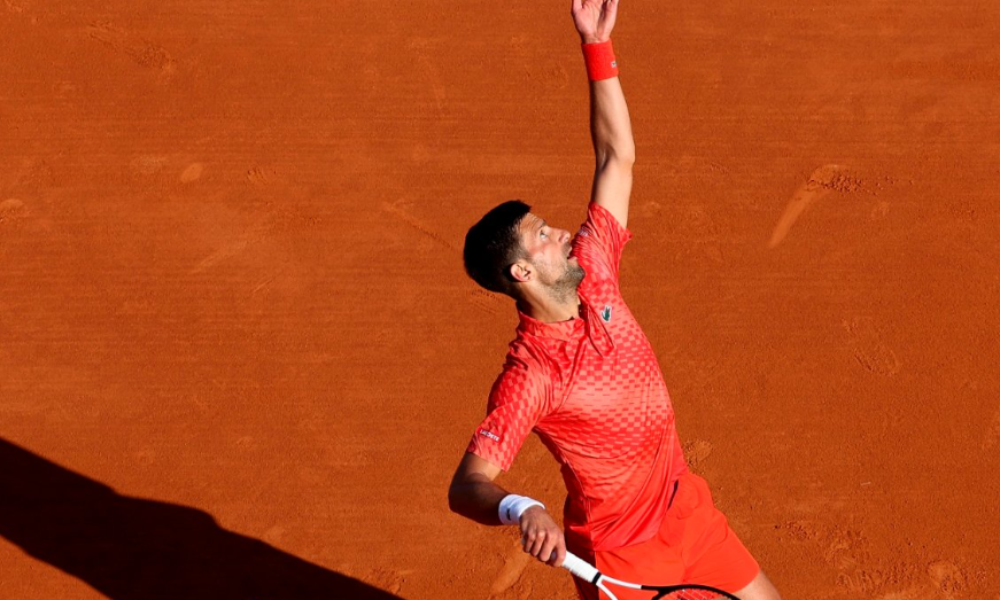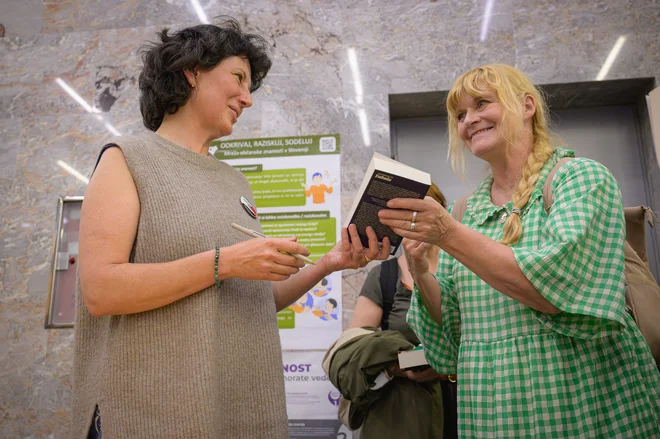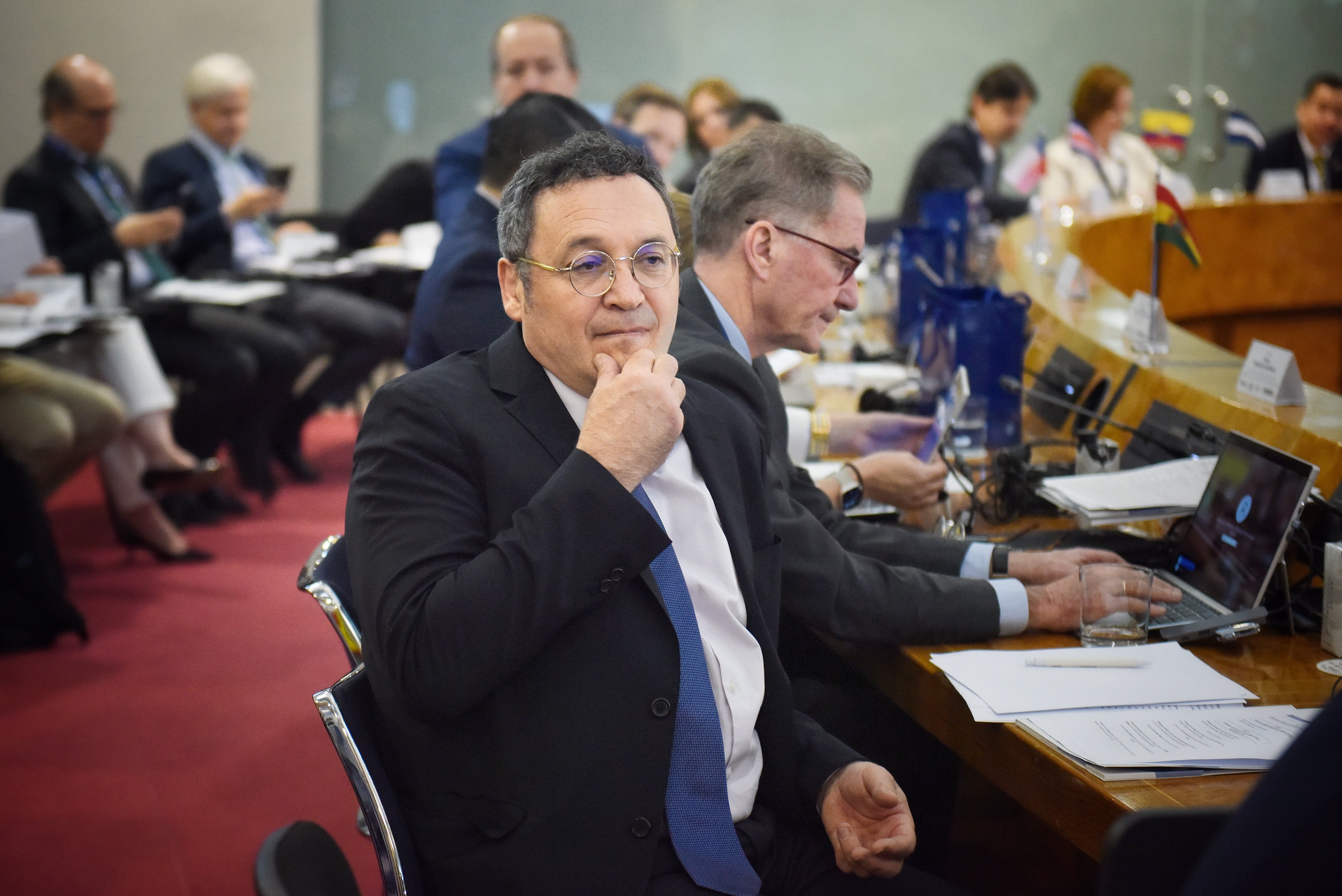Opinion | A better world starts at home
/s3/static.nrc.nl/images/gn4/stripped/data127738047-7437a8.jpg|https://images.nrc.nl/lsSbDyj1SsNBTmtpcZV3oHmpePg=/1920x/filters:no_upscale()/s3/static.nrc.nl/images/gn4/stripped/data127738047-7437a8.jpg|https://images.nrc.nl/WugMRsgJilyEs8bU084J2wjeTqg=/5760x/filters:no_upscale()/s3/static.nrc.nl/images/gn4/stripped/data127738047-7437a8.jpg)
Do you know the story of the lost world improver? He saw the world going, and felt an intrinsic motivation to extinguish the fire and leave the world more beautiful. He invested his time and energy in the fight against the fire. Climate crisis, threatening wars, genocide, human rights that are violated. Enough misery to tackle, and the world improver, every second and all the energy in his fibers to fight. « If I don’t do it, who is? We can’t live for ourselves alone? » But what he didn’t realize is that time and energy are not endless. So there was little time left to listen to the stories of his children, hug his beloved and to provide care as a family member. He became a lost world improver.
For many politicians, administrators, activists and other ‘world improvers’ this is their reality. In an attempt to make the world a better place, they neglect their relationships in the private sphere. And so they lose the balance between the large and the small world. Because they mainly spend their time and energy on their mission or calling to improve the world. As a result, they have little room for the small world. That makes it feel like they have failed as partners, parents and friends. Because you can wonder what you have won if you make a big impact through politics, business, activism and intellectual involvement and inspire masses of people, but fail to build a healthy bond with your children.
Our society would not function if every member would only focus on the private atmosphere, and will not interfere with public life. Then we would not have politicians to make laws, journalists to check them, activists to strive for better laws. But the opposite is also true. If every member of our society would only be concerned with the political matter, we would be very bad parents and friends. And with that we would build a society where we do not make a healthy connection, which would further undermine the general interest.
Big and small world
The search for the balance between the big and small world keeps me busy as a new father. My personal story is characterized by wars, displacement and injustice. That makes every fiber in me feel called to fight. It is therefore not surprising that I have become a lost world improver in recent years.
I surrounded myself with other lost world improvers. We told each other stories about the world that us needs. We were constantly on to discuss world problems with each other. But over the years I learned that the misery in the world does not stop. And that a career and political commitment only partially fulfill. To live fully and to make real impact, I also had to invest in the small world. Connect with a truly connection. Delay. Provide care.
That is why I find it inspiring that I am now surrounded by parents who put their families over career and political engagement. For example, after a divorce, a friend decided not to continue her scientific career, and to take care of her two sons. With her new partner, she got her third son, who, like his big brothers, grew up with love, care and attention in his first years of life. My neighbor reported sick because he is awake all night to take care of his baby. That baby has a serious form of reflux. To prevent all the milk she receives from going up again, she is held by her parents, even when she sleeps.
And I know a D66 councilor who canceled an important business trip to Iceland last year because he wanted to take care of his family. His wife had just received a hernia. « I have a responsibility to my employer, but ultimately the responsibility for my family is greater, » he said.
/s3/static.nrc.nl/images/gn4/stripped/data130054645-f055a8.jpg|https://images.nrc.nl/lz0089ymAyMfF5NRdLXZlzplLIA=/1920x/filters:no_upscale()/s3/static.nrc.nl/images/gn4/stripped/data130054645-f055a8.jpg|https://images.nrc.nl/Y42Y0-mIpEAyKEj0WuOIwK8QxH0=/5760x/filters:no_upscale()/s3/static.nrc.nl/images/gn4/stripped/data130054645-f055a8.jpg)
Small inner world
A better world starts at home. With the small inner world. That is the adage that the parents mentioned leads in their choices. Because they are aware of the fact that they have no grip on the large outside world at an individual level. While every energy they invest in their families spreads like an oil slick across that large outside world. Such as Dana Suskind, professor of pediatrics and author of Parent Nationit states: parents not only contribute to society, they also create her. They raise a new generation of teachers, students, employers, employees, politicians and voters. With that, parents act as guardians of our future.
At first because their care, love and attention contribute to the physical, emotional and mental well -being of their children. Children raised by responsible parents develop positive social skills, empathy and a sense of responsibility towards others. They perform better at school and develop a curious and learning attitude. In addition, responsible parents contribute to a high degree of self -esteem and self -confidence in their children. This allows these children to deal better with setbacks, make better decisions and build healthy relationships. They are also less susceptible to risky behavior, such as substance abuse, violence and crime.
Based on the idea of responsible parenting, we learn that our children do not belong to us. We received them as a gift to prepare them for society. Responsible Parenting therefore assumes the ability and dedication to create a safe environment as a parent where children can flourish in all their forms. So that they can grow up as responsible and productive members (read: citizens) of society. That means that they are provided with emotional, spiritual and educational needs. And that they see a role model in you as a parent, from whom they can learn (read: see) how they should be faced with others and the rest of society.
The account for responsible parenting is ultimately positive. Not only for children, but for the entire society. If every child had the opportunity to grow up in an environment where they develop their self -esteem, adopt an open attitude and show less risky behavior, we would have a healthier society in which citizens can move together and put the public interest at the center. There are plenty of instructions to assume that the latter is not being met.
To focus on that general interest, you can, just like large political thinkers of our time, claim that our political system is ready for a reprogramming. Libraries are now being written about this statement and countless laws have been drawn up. We read in this that democracy is in crisis, and that we have to bridge a « gap » between winners and losers of our political economy. That we must stimulate ‘democratic citizenship’. And schools must legally oblige to make citizenship part of the curriculum, as is now the case in the Netherlands. The only question is whether these interventions are not just sticking a plaster on the wound, without tackling the core of the problem. What if the real crisis that lies before us has more to do with the way we organize our families, and the time, attention and care that we spend on our children and family members? What if citizenship actually starts at home?
Political community
Citizenship assumes membership of a political community, with the associated rights and obligations. The idea that citizenship starts at home fits in with the communitarist tradition, which states that citizenship is inextricably linked to community. The family forms the first and most important community in which our formation begins. Such as philosopher Michael Sandel, a prominent communitarist thinker, says: The family is a « school for responsibility and civil virtues », a place where values such as community sense and care are taught for others. Citizenship is not only about complying with rules, but also about empathy, involvement and an active contribution to common life. The basis for these skills is initially laid at home. In the small, everyday actions: eating together, taking care of each other, participating in the household, having conversations around the world around us, resolving quarrels and apologizing.
But this formation requires attention and time – something that gets little room in our society. As a result, not everyone who founds a family gets the ability to contribute to the upbringing and formation of citizens of tomorrow as responsible parents. This is largely due to the crooked relationship between work and work – an artificial distinction that characterizes our economic structure. Where work (paid professional commitment) is central to our political and social thinking, work (such as care for children) is printed to the margins. The result? A society in which parents are systematically encouraged to define themselves through career. In the meantime, we shift the responsibility for upbringing to institutions: schools, childcare, sports clubs. In this way we reduce care for our children to a consumption article and entertainment. As long as we feed our children, entertain with outings and holidays, or compensate for gifts, we think we have fulfilled our role.
This mechanism is stimulated by our obsession with time efficiency. In a system that sets two working parents as a norm, there is little room left for slow, meaningful interaction and discomfort. Exactly the skills we need to concentrate on the common questions of our time. Ironically, we teach young people extensively how to read spreadsheets and make presentations, but not how you are comforting a child, patiently or entering into uncomfortable conversations.
Policy from figures
We are at the mercy of an administrative elite that makes policy from figures, and not from the heart of society: the family. The Greeks already saw this: Labor (ponos) was needed for living, but work (ergon) Singed actions included, such as forming a child to a balanced person. Today we invest in collective ponosat the expense of ergon. Parents are praised for promotions, not for the patient and uncomfortable conversation at the kitchen table. As a result, more and more parents are being imprisoned in a paradox: successful on the labor market, politics, or within activism, but fail at home. Not because they fall short, but because the system forces them to choose between two incompatible ideals.
Christian Democrats have told us for years that the family is the cornerstone of society, and they have always been right about this. We would do ourselves a favor if we developed laws that encourage parents to be more involved in the education of their children. We do not have to limit ourselves to biological parents. We can also create a culture that encourages people without children to take care of the children of their family members and friends. And with the concept of ‘world improvers’ or ‘moral ambition’ we should not only think of the exhausted activist or politician, but of parents who consciously make room to provide their children responsible. The care for our children is the backbone of our society. Until we acknowledge that, we continue to watch how generations grow up between spreadsheet parents, exciting vacations and toy paradises. Fed, but not felt.

/s3/static.nrc.nl/images/gn4/data133306995-b21914.jpg)
/s3/static.nrc.nl/wp-content/uploads/2025/06/07043854/ANP-426099410.jpg)
/s3/static.nrc.nl/images/gn4/stripped/data133212332-41b949.jpg)



